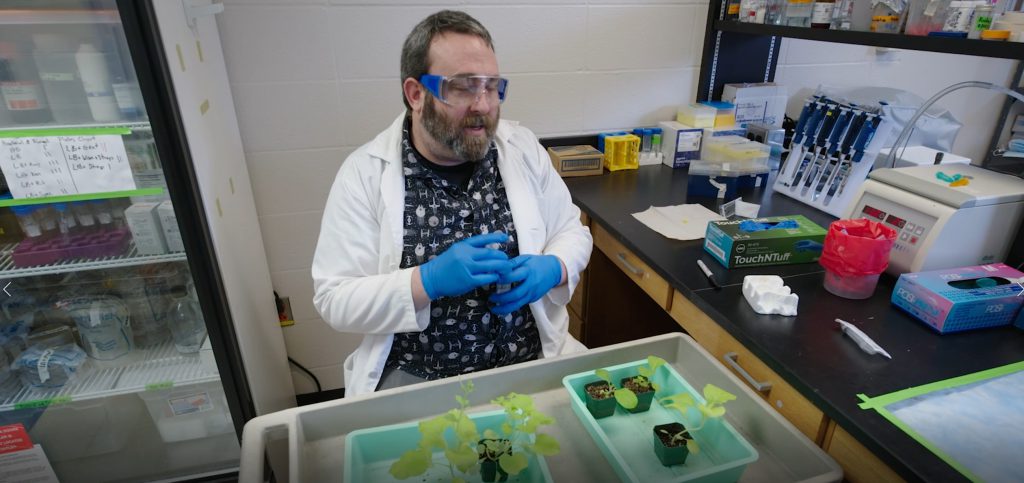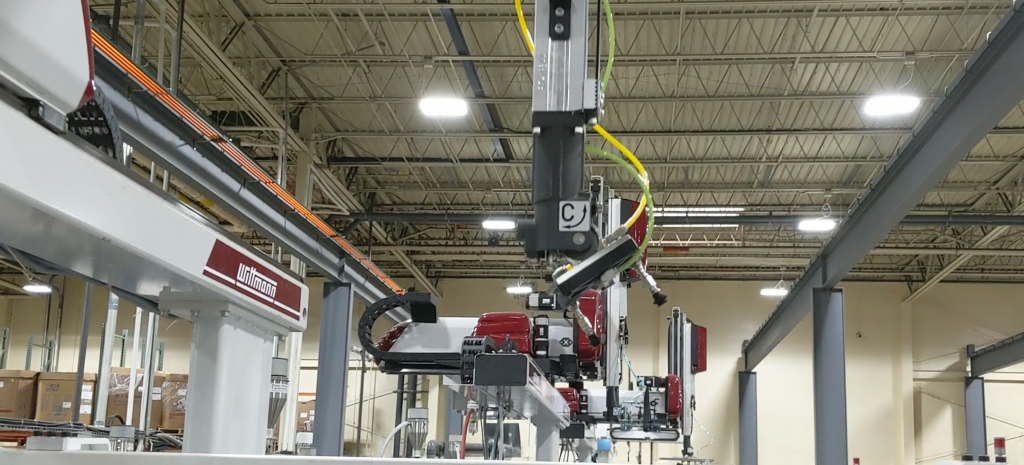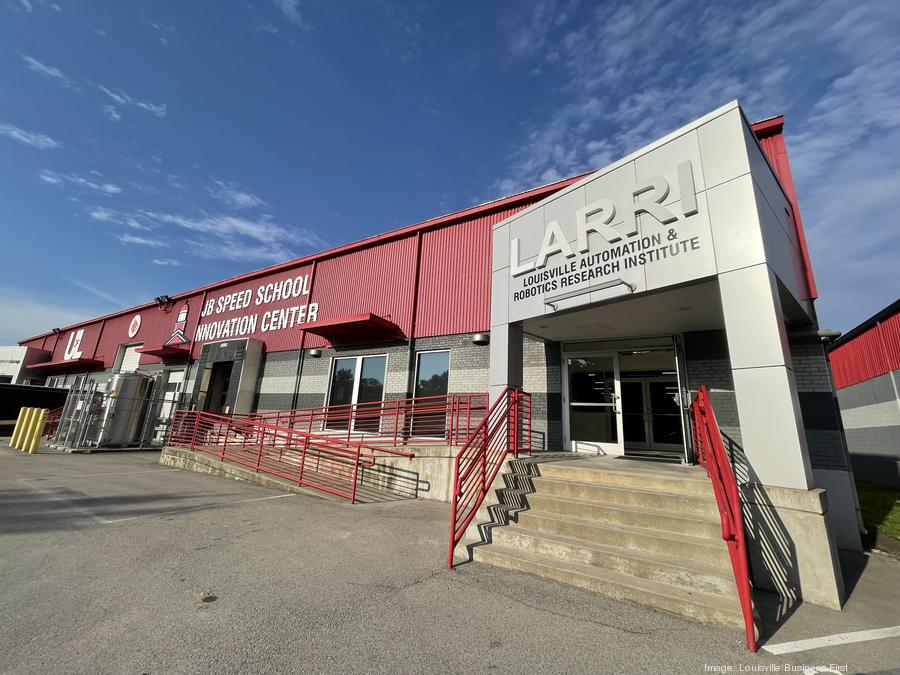As part of Objective 1.1.2. of KY NSF EPSCoR’s strategic plan,
Explore to what extent new materials synthesized through synthetic biology can yield superior structural polymers or resins with programmable lifetimes.
Dr. David Schultz and Dr. Mark Running’s labs at the University of Louisville have isolated plant and fungal genes encoding enzymes capable of producing conductive and semiconductive biomaterials (Thiophenes, Eumelanin) and insulating materials (Anacardic Acid and Monoenoic Fatty Acid precursors to Nylon polymers). Transformation of plants suitable for scalable production to achieve high yield has been successful, with regeneration and bulking in progress.
Jared Scott, PhD student from the Schultz lab, in this video, is infusing these insulating materials into a tobacco plant, observing the future potential of extracting fatty acid nylon precursors from the agricultural giant. These precursors would serve as a more sustainable replacement for petroleum-based polymer precursors for manufacturing.




